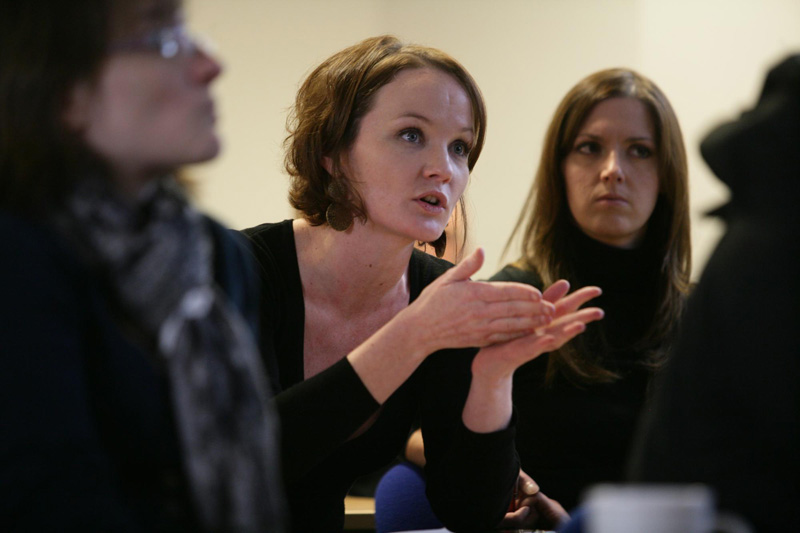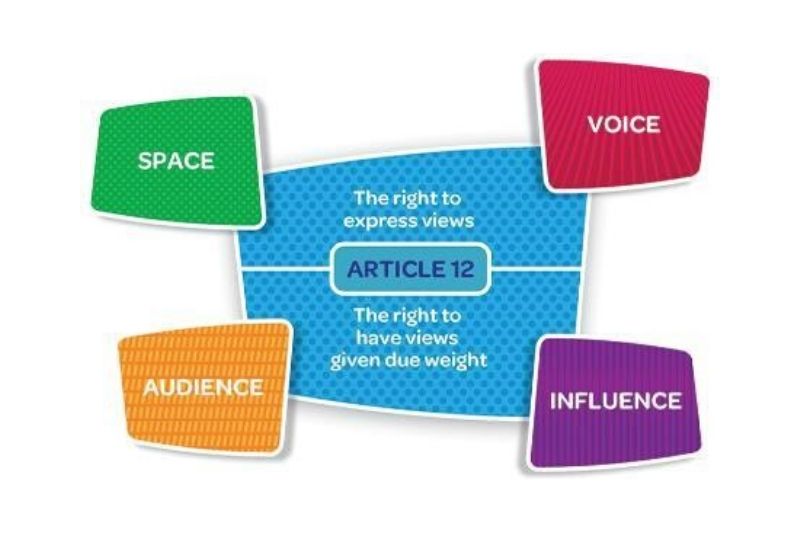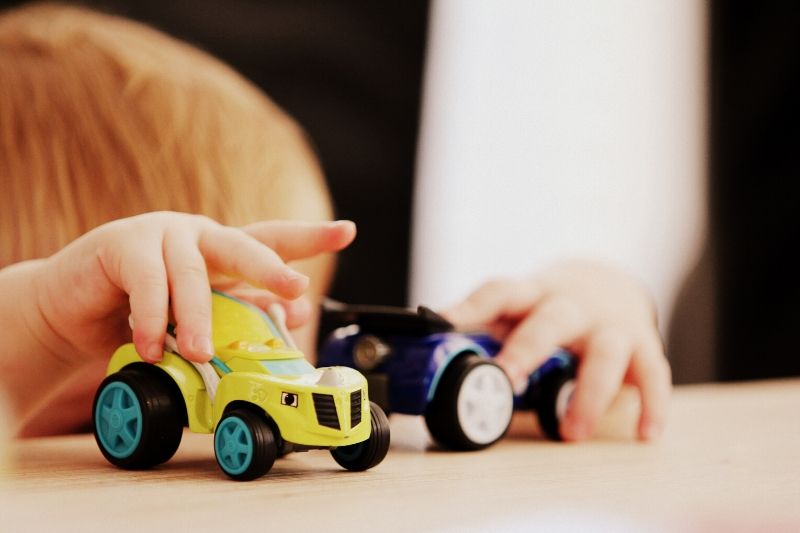Our Impact
Much of our research is carried out in our specialist research centres, networks and institutes. Below are some examples of the ways in which our research is changing the world for the better and impacting on the lives of people in the UK and internationally.

Research undertaken by Professor Laura Lundy and Dr Bronagh Byrne on the implementation of the United Nations Convention on the Rights of the Child (UNCRC) is influencing global debate on the issue. The research, which included an examination of the legal and non-legal measures used in 12 global countries, is being used as a guide by governments worldwide to incorporating the UNCRC in law and as a tool for advocacy by international NGOs working in the area.
The research carried out has been recognised in the ‘Best of Unicef Research’ exercise internationally and has directly informed the Children’s Services Co-Operation Act (Northern Ireland) (2015) nationally. The QUB team is working with international experts to assess and monitor different approaches to incorporation with the aim of identifying characteristics of best practice for effective realisation of children’s rights.

Research on the development and impact of shared education in Northern Ireland undertaken by Professor Tony Gallagher, Professor Joanne Hughes and colleagues in the Centre for Shared Education (CSE) at QUB has had a major impact on policy and practice locally and in other divided and contested societies.
A Ministerial Advisory Group Report (2013) reviewed research evidence on Shared Education and recommended its adoption by the Department of Education. The Northern Ireland Assembly placed a statutory duty on the Education Authority to ‘encourage, facilitate and support’ shared education in 2014, and on the Department of Education in the 2016 Shared Education Act. The pilot work by QUB on Shared Education was incorporated in the Shared Education Signature Programme (SESP) (2016).
Over 600 schools and 60,000 pupils are currently participating in shared education partnerships through these initiatives, and QUB researchers continue to make important contributions through training, research and evaluation. The model has also been adapted for use in Israel, Kosovo, North Macedonia, Bosnia Hezegovina and Lebanon, with a programme of research and development supported by QUB.
Shared education research has been supported by funding from GCRF, AHRC, the EU and a range of other sources, and colleagues in the CSE collaborate with international organisations such as UNICEF and UNESCO to maximize the potential for global impact.

The Lundy model of child participation, based on four concepts (Space, Voice, Audience and Influence), has been adopted by national and international organisations and governments to inform their understanding of children’s right to have their views sought and given due weight in decision-making, generating a sea-change in global understanding of child participation for policy and practice.
Professor Lundy has collaborated with international organisations (United Nations, European Commission, Council of Europe), international NGOs (Child Rights Connect, UNICEF, World Vision, Save the Children, Terre des Hommes), national governments and agencies (in Ireland, Taiwan, Belgium, Scotland, Iceland, New Zealand) and scores of other individual agencies and NGOs to adapt and apply the Lundy model for their context.

Research by criminologists at QUB on how former prisoners are able to reintegrate into wider society has had a major impact on criminal justice practice throughout the UK and well beyond. QUB's research on “desistance from crime” has influenced the development of several, major initiatives in prisons and probation units internationally as well as in grassroots projects started by ex-prisoner to support other ex-prisoners.
The research has impacted the way criminal justice systems think about risk assessment, rehabilitation delivery, outcome measurement, and the recognition of sentence completion over the past ten years, as recognised by impact awards from the ESRC and the Howard League for Penal Reform.

The ability to make decisions about our own lives is central to our sense of autonomy and independence. At times, however, our ability to make decisions may be impaired for a wide range of reasons. It is therefore important to have a legal framework which enables decisions to be made and that provides safeguards to ensure those decisions are appropriate. The Mental Capacity Act (Northern Ireland) 2016 introduces a world-leading non-discriminatory legal framework for people whose decision-making capacity is impaired for any reason.
Prior to this unique law most jurisdictions have developed separate mental capacity and mental health laws which create different approaches based on the form of disability which may be the cause of the impaired decision making.
Research conducted at Queen’s has helped to inform the development and implementation of the new Act. This has included research on: the relevant practice issues such as assessment and inter-agency working; people’s experiences of decision making processes and how they can be supported to make their own decisions; and international comparisons of frameworks for decision making. The work at Queen’s has also involved contributing to the development of educational resources and innovative, interactive forms of training to support the effective implementation of the new Act.
Professor Gavin Davidson, Professor Gerry Gormley, Professor Berni Kelly, Dr Claire McCartan, Dr Lorna Montgomery, Dr Paul Murphy

Awareness of the cumulative negative impact of adverse childhood experiences on child and adult health and wellbeing outcomes over the life course is gaining worldwide attention, with whole systems of care across child welfare, mental health, criminal justice, social care and education adopting a trauma-informed approach to practice.
The QUB team’s research interest in adverse childhood experiences began in 2010 and continues to expand today, with regional cross-sector practice and policy influence, seeking to enhance the service experience, health, safety and wellbeing of NI’s most vulnerable children and their families.
Since 2015, the QUB team, in collaboration with the South Eastern Health and Social Care Trust (SEHSCT), has been involved in designing, writing guidance and piloting unique NI-bespoke ACE practice initiatives, training approximately 800 social workers to embed the principles of adversity and trauma-informed care in everyday service provision across a range of health and social care contexts. This training and guidance has since been delivered by the SEHSCT to a range of local and national audiences.
In 2018, the team were commissioned by the Safeguarding Board NI (SBNI) to undertake a rapid evidence review of trauma-informed care across health, education, social care and justice. The evidence review findings are being used to inform the NI strategy roll-out, identifying key implementation domains to strengthen the effectiveness of trauma-informed responses across the different systems and promote inter-agency collaboration, as a means to intervene early to prevent childhood adversity and support the resilience and recovery of children and their families.
Dr Suzanne Mooney, Dr Lisa Bunting, Professor Gavin Davidson, Dr Lorna Montgomery, Dr Mandi MacDonald, Dr Stephen Coulter, Dr David Hayes
